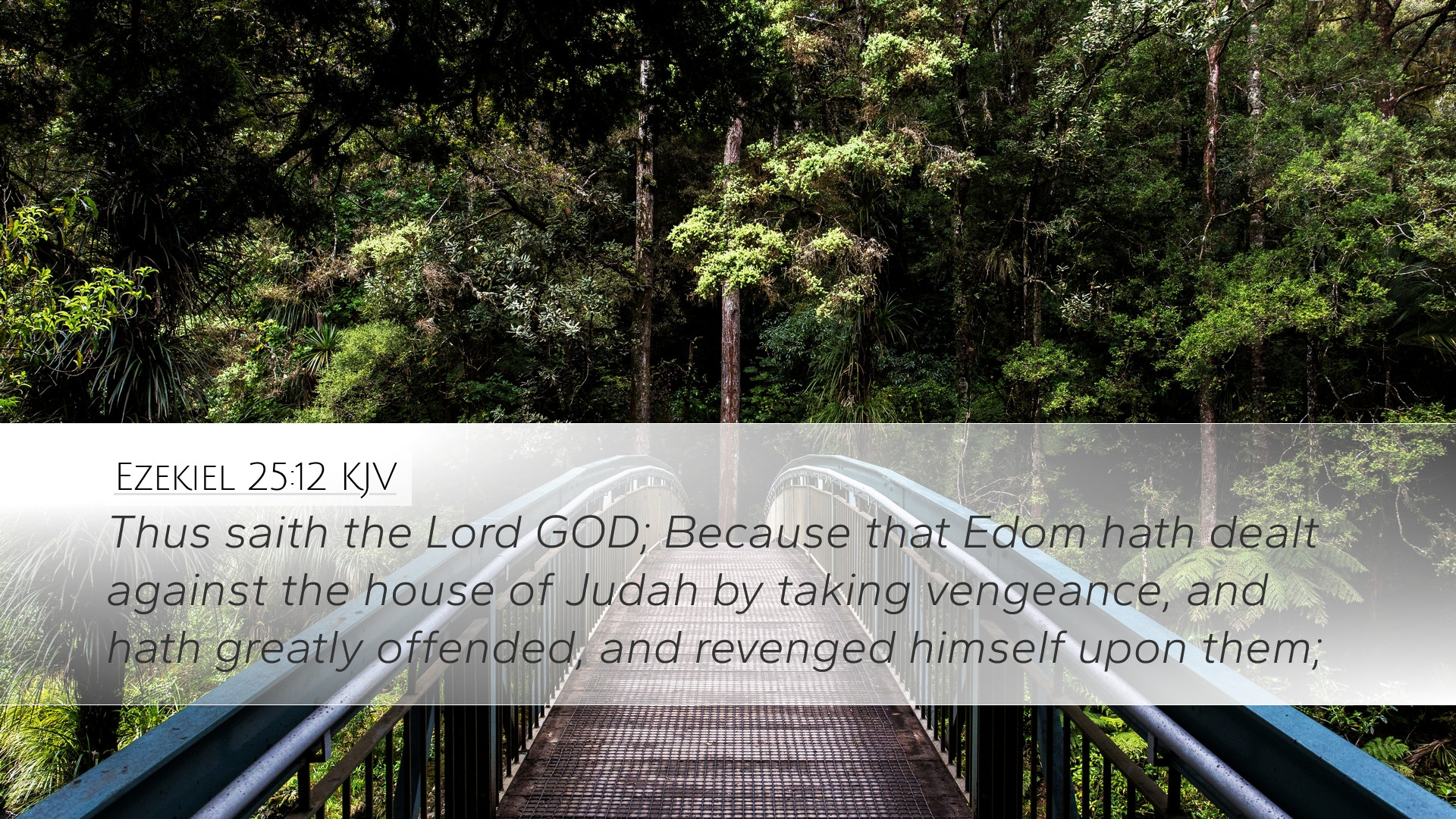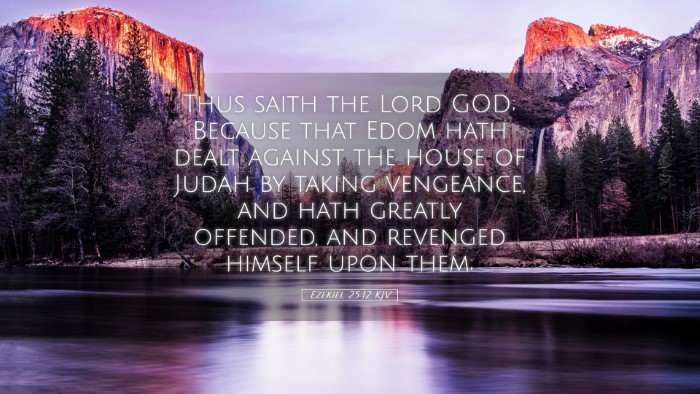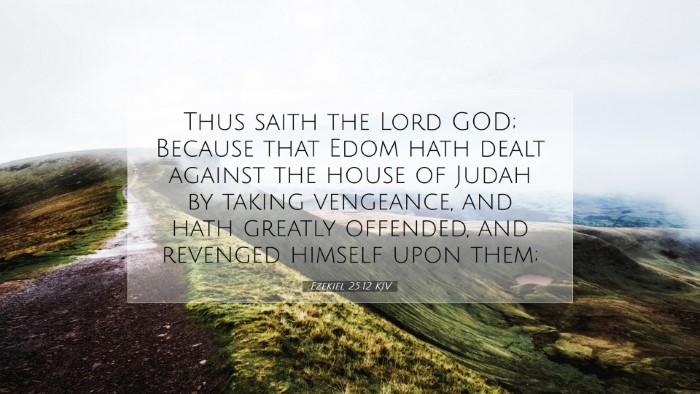Ezekiel 25:12 - A Commentary
"Thus saith the Lord God; Because that Edom hath dealt against the house of Judah by taking vengeance, and hath greatly offended, and revenged himself upon them."
Contextual Background
Ezekiel, a prophet during the Babylonian exile, delivers messages that encompass both judgment and restoration. Chapter 25 focuses on the nations surrounding Israel, highlighting God's sovereignty over all nations and His intention to hold them accountable for their actions, especially against His people.
Edom, descendants of Esau, historically held animosity towards Israel, stemming from familial rivalry. Understanding Edom's relationship with Israel provides essential insight into the gravity of God's judgment pronounced in this verse.
Theological Insights
-
Divine Justice:
As noted by Matthew Henry, this verse represents God's intent to execute justice against Edom for its transgressions against Judah. Such judgments reflect God's righteousness, emphasizing that though nations may rise against His people, they will ultimately face His reckoning.
-
Human Vengeance vs. Divine Retribution:
Albert Barnes remarks that Edom's actions were not merely a reaction but a pursuit of vengeance, a violation of the laws of love and kinship. This brings forth the distinction between human wrath, which often seeks to inflict pain, and divine retribution, which seeks to correct and restore.
-
Covenantal Relationships:
Adam Clarke points out that the relationship between Israel and Edom was defined not just by conflict, but also by the covenant God made with His chosen people. Therefore, Edom's aggression was not only an offense to Judah but a challenge to God's covenantal fidelity.
The Nature of Edom's Offense
The phrase "hath greatly offended" carries significant weight in this verse. It implies that Edom's actions were not merely slight grievances but acts of severe hostility. Their methods were characterized by cruelty, as indicated in the broader context of Edom's history recorded in the Scriptures.
The "vengeance" mentioned reflects a pattern of retribution that escalated over time, fueled by long-standing animosity. The emotional intensity attached to this vengeance speaks to the depths of human conflict and the divine purpose behind such historical leadership.
Lessons for Today
-
Accountability Among Nations:
Ezekiel 25:12 serves as a reminder that nations are accountable to God for their actions, especially against His people. For modern readers—pastors, theologians, and students—it is crucial to discern how nations today navigate issues of justice and mercy.
-
Understanding Relationships:
The historical animosity between Edom and Judah allows contemporary readers to explore the implications of unresolved conflicts. The church, too, must navigate its kinship with other groups and seek reconciliation over vengeance.
-
God's Sovereignty:
Ultimately, the verse encapsulates God's sovereign ability to judge and rectify injustices. This reaffirms a central theme in Christian theology—that God is in control and will vindicate the oppressed.
Reflections for Pastoral Ministry
Pastors and ministers can view Ezekiel 25:12 within the context of pastoral care. The call for justice against oppressors can guide believers in speaking out against injustices in their communities. Moreover, this verse challenges the church to promote forgiveness and reconciliation, reflecting God's heart to restore broken relationships.
In approaching church members experiencing conflict, the narrative of Edom serves as a potent reminder: vengeance belongs to the Lord. Pastoral counseling will benefit from this understanding, fostering a culture of grace rather than retaliation.


